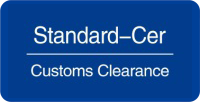Phone:19867712682
Fax:0755-26400594
QQ:1964087735
Email:Leo.Li@cert-compliance.com
Address:Second 2 Floor Building No.30,Zhiheng Industrial Park,Guankouer Road,Nantou,Nanshan District,Shenzhen,Guangdong,China
- Detail
012020-11
Saber certification in Saudi ArabiaSABER certification refers to a conformity certification evaluation program for non-Saudi local companies (ie companies that export to Saudi Arabia). Therefore, for Chinese export companies, the SABER certification program needs to be paid attention to. SALEEM and SABER are newly launched upgrades based on the original SASO certification. They are also new certification and accreditation programs that will replace SASO certification. SALEEM certification is a conformity certification evaluation program for local Saudi companies.
- Detail
072020-11
GCC CertificateGCC is the English abbreviation of Gulf Cooperation Council. The Gulf Cooperation Council was established in Abu Dhabi, UAE on May 25, 1981. Its member states are Saudi Arabia, Kuwait, United Arab Emirates, Qatar, Sultanate of Oman, Kingdom of Bahrain, and Yemen. The General Secretariat is located in Riyadh, the capital of Saudi Arabia. The highest authority is the Supreme Council, which is composed of the heads of member states, and the chairman is assumed by the heads of states in rotation for a one-year term. The political and economic systems of the six countries are similar, the royal family is closely connected, and they have common interests in politics, economy, diplomacy, and national defense. They are an important political and economic organization in the Middle East.
In May 2009, the GSO Board of Directors held its tenth meeting and reached a consensus resolution on GCC Conformity Marking. It is required that all regulated products must be affixed with the GCC Conformity Marking logo. These products with the GCC Conformity Marking logo can be circulated and traded in GCC member states more quickly and conveniently. In addition to meeting the basic health, safety and environmental protection requirements, all products with this logo must also meet the requirements of the relevant GSO standards and regulations applicable to the product. - Detail
142020-11
Kenya Coc/pvoc CertificationOn July 15, 2005, the Kenyan Ministry of Trade and Industry issued a decree stating that products exported to Kenya that are included in the control list must provide a "product conformity" certificate at the time of customs clearance to prove that the products meet Kenya’s domestic technical standards and regulations. Since January 18, 2012, the Kenya Bureau of Standards requires the implementation of pre-shipment conformity certification (PVoC) for goods imported into Kenya. The purpose is to ensure the quality of imported products and protect the health of Kenyans and the environment.
- Detail
282020-11
Uganda COC CertificationAccording to Uganda National Bureau of Standards Decree 327 and customs clearance inspection regulations, the Ministry of Foreign Trade and Tourism of Uganda implements pre-export conformity assessment on products imported into Uganda at the place of origin. The purpose of this program is to reduce the inflow of non-compliant products in Uganda. It was implemented on June 9, 2010. The scope of implementation is to assess whether controlled products comply with Uganda Standards or other standards and technical regulations approved by the Bureau of Standards. Except for products imported from Kenya, Tanzania, Burundi and Rwanda to Uganda, all controlled products Both require mandatory assessment.
- Detail
052020-12
Tanzania COC/PVOC CertificationThe executive director of the Tanzania National Bureau of Standards (TBS) has issued a formal official confirmation document that this conformity assessment procedure (PVOC) can be implemented and executed. All controlled products covered by the PVOC program must be inspected. The products must comply with Tanzanian national standards and other recognized standards, and on this basis, a product certificate of conformity (COC) must be issued.
Tanzania will implement the COC, the English name: Certificate of Conformity, from February 1, 2012, which is a pre-shipment inspection. All products listed in the Tanzania Controlled Catalogue need to apply for COC before shipment, otherwise they will not be able to clear customs at the port of destination. Unlike the previous Tanzania shipment inspection, Tanzania COC needs to be applied for before shipment. Once the cargo has left the port, it will not be able to replenish the COC. In addition, Tanzania COC also needs to submit product inspection reports and other materials for document review. Only after passing the review can they arrange pre-shipment inspections and obtain COC certificates.
The Certificate of Conformity (COC) is a necessary document to ensure the smooth customs clearance of goods. This certificate proves that the product complies with relevant Tanzanian technical regulations and national, regional and international standards. Failure to submit the conformity certificate issued by the inspection agency may result in delays in customs clearance or fines or even the goods being returned to the exporting country. - Detail
122020-12
- Detail
192020-12
Australian SAA certificationSAA Standards Australia International Limited (Standards Australia International Limited) is Australia’s only standard certification body, and all electrical products are subject to safety certification (SAA). The inspection agency checks the safety and reliability of electrical appliances through destructive tests on electrical appliances. For example, in transformers, which need to withstand 3000V withstand voltage, check the safety performance of electrical appliances. Check the electrical structure of the power supply to check for leakage. Evaluate the mechanical hazards of electrical appliances to see if there are hidden dangers, etc.
- Detail
262020-12
The United States FCC-ID certificationAccording to the relevant parts of the United States Federal Communications Regulations (CFR Part 47), all electronic products entering the United States require electromagnetic compatibility certification (FCC certification). At present, the United States has become my country’s second largest trading partner for several consecutive years, and the trade volume between China and the United States is increasing year by year, so exports to the United States should not be underestimated. The rigorous product technical standards and import regulations of the United States are number one in the world. Understanding the rules of American market access will help our products further open the American market.
The Federal Communications Commission (FCC)-regulates the import and use of radio frequency devices, including computers, fax machines, electronic devices, radio receiving and transmission equipment, radio remote control toys, telephones, personal computers, and other products that may harm personal safety. If these products are to be exported to the United States, they must be tested and approved by a laboratory authorized by the government in accordance with FCC technical standards. Importers and customs agents have to declare that each radio frequency device complies with FCC standards, the FCC license. - Detail
032021-01
How to handle GS?ETL SEMKO is a part of Intertek Testing Services Co., Ltd., the world’s largest product and daily necessities inspection organization, with 240 laboratories and 469 offices in 93 countries in North America, Europe, and Asia. ETL SEMKO provides product safety testing and certification, EMC testing, product performance testing, and quality management for various industries such as medicine, HVAC, appliances, telecommunications, aviation, automation, semiconductors, building materials, energy generation systems, etc. System registration. After testing to meet the relevant product safety standards, it means that the production plant has agreed to receive strict periodic inspections to ensure the consistency of product quality, and can be sold to the United States and Canada.
|
Recommended News
- 2020-11-01Saber certification in Saudi Arabia
- 2020-11-07GCC Certificate
- 2020-11-14Kenya Coc/pvoc Certification
- 2020-11-28Uganda COC Certification
- 2020-12-05Tanzania COC/PVOC Certification
- 2020-12-19Australian SAA certification
- 2020-12-26The United States FCC-ID certification
- 2021-01-03How to handle GS?



 scan
scan scan
scan
